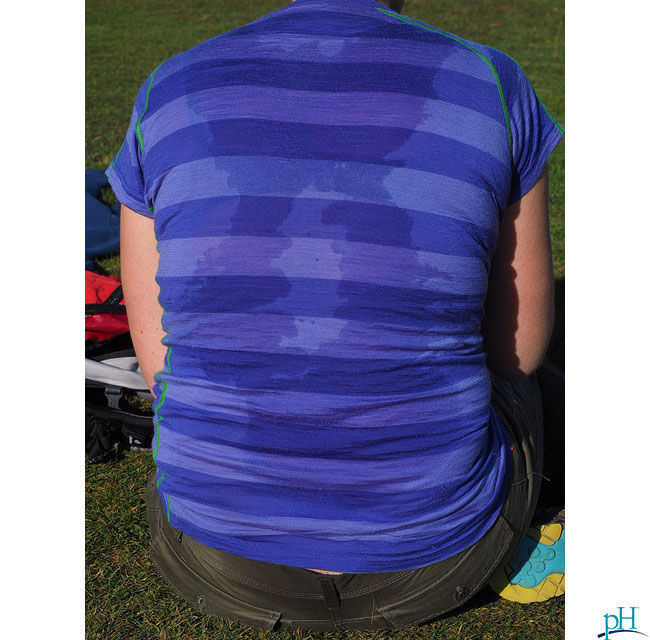Do you sweat excessively even if you aren’t doing anything exhausting? Here’s the blog you’ve been waiting for
9 years ago | Workplace Wellness
By pH health care professionals
Do you constantly have to wipe your forehead? Do you always pack an extra shirt for work, just in case you sweat through? Do you find that you’re sweaty even when you’re not hot, nervous or exercising? If so, you may actually have a treatable medical condition called hyperhidrosis.
If you think you are sweating too much and may have hyperhidrosis, schedule an appointment with a dermatologist. Dermatologists are doctors who specialize in issues of the skin, and they are trained to diagnose and treat hyperhidrosis. They can tell you what type of hyperhidrosis you have and the best ways to treat it, the American Academy of Dermatology (AAD) said in a news release.
Preparing for your dermatologist appointment for possible hyperhidrosis
To prepare for your dermatologist appointment, the AAD recommends answering these questions:
-
Do any of your blood relatives have excessive sweating?
-
Do you sweat a lot while sleeping?
-
When did you first notice the excessive sweating?
-
Do you avoid certain activities or social situations because of your sweating?
-
How often do you sweat excessively?
-
Does anything seem to trigger your sweating?
Dealing with excessive sweating in the meantime
In addition to scheduling your appointment, here are a few ways to combat hyperhidrosis in the meantime, according to board-certified dermatologist Jenny Eileen Murase:
-
Use antiperspirant. Deodorants mask or stop body odor, but they still allow you to sweat. Over-the-counter or prescription antiperspirants plug your sweat glands, signaling your body to stop making so much sweat, she said. Be sure to use your antiperspirant as directed on the packaging. Some require that you apply it at night and again in the morning.
-
Note from pH: Studies on antiperspirants and breast cancer have yielded conflicting results, the National Cancer Institute says. Therefore, more research is needed to determine whether antiperspirants cause cancer. However, in the meantime, some people are choosing aluminum-free deodorants to be proactive. Some research has suggested that aluminum compounds in antiperspirants may be absorbed through the skin and cause estrogen-like effects. The problem with this is that estrogen can promote the growth of breast cancer cells, NCI says.
-
Keep a log. See if certain situations trigger the excessive sweating. Write down when the sweating occurs so you can avoid the triggers. Some common triggers, Murase said, include heat, feeling anxious, and certain foods and drinks (such as monosodium glutamate/MSG, caffeine, hot sauce, spices and alcohol).
-
Change footwear often. Try to avoid wearing the same shoes two days in a row, so your shoes can dry completely before you wear them again. You may be more comfortable in shoes made of natural materials like leather, which allow air to circulate. Also, change your socks at least daily and wash them before wearing them again. Look for socks that wick moisture away from your skin. Wearing sandals, or wearing shoes you can slip off for a while, can also help keep your feet dry. Wet or clammy feet may increase your risk for skin infections like athlete’s foot.
“If you feel anxious or embarrassed by sweating, talk to your dermatologist,” Murase said. “It’s possible to find treatment that effectively controls your sweating and improves your quality of life.” You can also keep an eye out for hyperhidrosis clinical trials.
Enjoy Your Healthy Life!
The pH professional health care team includes recognized experts from a variety of health care and related disciplines, including physicians, health care attorneys, nutritionists, nurses and certified fitness instructors. To learn more about the pH Health Care Team, click here.







